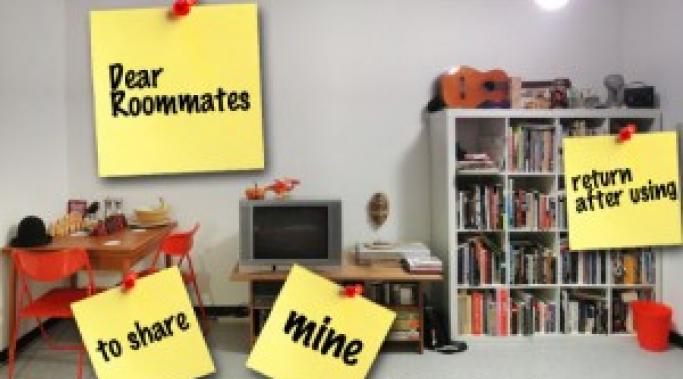I am about to take a vacation. In t-minus 1 hour-ish, I will be leaving for the great state (I assume) of North Carolina. Does having Adult ADHD impact how we have vacations? I think so - and I definitely think it impacts how we are able to get on the road. Planning, organizing and waiting are all things that can be tough.
ADHD Relationships
Saturdays have long been the hardest day of the week for me. There is so much unscheduled free time and my Adult ADHD feeds off of it. I've gotten really adept at remember to make task lists and having that be what leads my day, but even that hasn't been allowing me to feel relaxed and easy going on a Saturday. My wife had a heck of an idea the other weekend that I found really worked: make more than one list for free time.
Before I start talking about how having Adult ADHD can affect being a roommate, I want to say I hope you all have a really great week this week. Mondays can be super hard - you've just gotten over the fact that yesterday was Sunday (maybe you had the ADHD Weekend Blues even) and now you have to start a whole week or school and/or work (my apologies to those of you I am leaving out of this by saying that - those of you who don't work the "typical" workweek). Anyway, have a great week ... now, roommate talk.
Do you hover over your spouse while they’re doing housework or completing other important tasks around the house? Do you take more than your share of responsibility for things in your ADHD relationship? Do you find it is just easier to get things done if you micro-manage your partner’s schedule or better yet, do it yourself? Have you tried nagging, pleading even anger to try and motivate your partner to get things done. If so, you may be a helicopter partner!
When you meet new people and you admit to having Adult ADHD, it's easy for people to jump to conclusions about your behavior. It's easy to say that you're an adult and you should be able to do X, Y, and Z without issue, but having Adult ADHD can make X, Y, and Z more difficult.
Adult ADHD presents unique challenges when it comes to meeting new people. New acquaintances can view your ADHD qualities as fun quirks that will make you a neat new friend, or they might view your quirks as qualities to avoid.
Adult ADHD relationships can be troubling at times, especially if you and your partner don’t take ADHD symptoms into account. For instance, in my adult ADHD relationship, we have to plan for change. Change can be difficult for some adults with ADHD. I'm not a spontaneous person and changes to plans really ruffle my feathers.
Ahh Valentine’s Day. A whole day traditionally devoted to celebrating love. And as it is quickly approaching, my thoughts turn to relationships, all sorts of different ADHD relationships, and how ADHD can be a test for even the strongest connections.
When I work with adults, often the focus of our coaching sessions turns to a request for the best ways to handle conflicts with partners. I often hear these concerns:
The impact on siblings of children with ADHD is not often talked about, yet it is an important discussion to have in order to create healthy and functioning families. Studies show that siblings of children with ADHD experience the same disruption, chaos, unpredictability and exhaustion as their parents. At times, they may even feel victimized, unprotected and powerless, particularly when faced with expectations to “take care” of their siblings.
A healthy family considers everyone’s needs. Here are some tips for parents to help minimize the effect of their ADHD child on other siblings in the family:
"I have not failed. I've just found 10,000 ways that won't work." ~ Thomas Alva Edison
Having lived most of their lives with the inconsistency, unpredictability and undependability of life with ADHD, it is incredibly common for adults with ADHD to view themselves as “failures”. Because the executive function of their brain is not always fully activated, it is in fact normal for them to fail at least sometimes, if not frequently. Beginning in early adolescence, these typical failures can become a permanent obstacle to future successes for those with ADHD as it undermines their confidence and willingness to take future chances.






